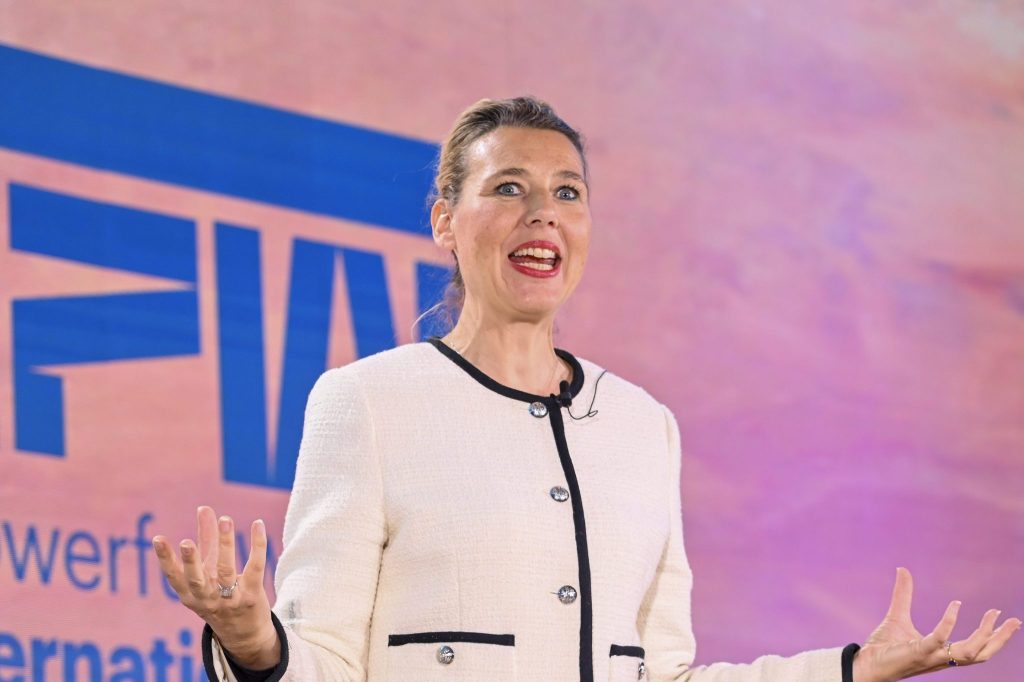For many commuters, driving is a pain. More cars on the road have brought more congestion. The EV revolution, in some countries, hasn’t been met with a similar charging infrastructure revolution. Then there’s the ever-rising cost of car ownership. The inevitable solution to these problems, at least according to the woman behind an eCopter startup, is to look to the skies.
“We believe that the next step is into the third dimension,” Yvonne Winter, COO and co-founder of FlyNow, said during a presentation at Fortune’s Most Powerful Women conference in Riyadh.
Austrian mobility group FlyNow is one of several companies trying to become an early winner in the electric vertical takeoff and landing (eVTOL) race. The sector has already attracted more than $20 billion in investment to date, despite the vast majority of models remaining in prototype and testing phases.
Winter is realistic about the boxes eVOTLs need to tick before they can be seen as a viable transportation model and, accordingly, create a profitable industry. The eCopters need to be able to compete on price with cars, she says, and will need to be automated. “Pilots don’t grow on trees.”
Much of Winter’s outlook on the mobility sector comes from a place of optimism, even if she is downbeat on the future of road vehicles. Still, Winter says the car industry is an exemplar for how it has nurtured a valuable downstream industry across several associated sectors.
“I deeply believe that the country that leads the development in mobility will be the most powerful industry nation in the future,” she said. In order to unlock that opportunity, such a country will need an OEM manufacturer that is capable of producing eCopters on a vast scale and at a limited price.
FlyNow has lofty ambitions ahead of its debut at Riyadh Expo in 2030. Winter says FlyNow’s eCopter will come in at a starting price of 1.4 million Saudi riyal ($373,000), which she says is a fraction of the prices touted by competitors.
Riyadh, which Winter calls home, is housing FlyNow’s production and implementation. The company’s eCopter is set to go through countless hours of testing, before beginning shipments of cargo like medicine and washing machines. Eventually, Fly Now plans to put passengers in its vehicles.
Challenges abound before eVOTLs become commonplace in city skies. The technology is still in its infancy but developing rapidly: “The infrastructure is not there. The market is not there yet. The customers are not there,” said Winter.
There will also be the small matter of overhauling the low-altitude air traffic control network, to accommodate thousands of cargo-carrying and passenger-carrying vehicles flying through the air at once.
Winter warns: “One air traffic controller… can handle 10 planes simultaneously. When we have thousands of different vehicles in a confined airspace, this is, of course, not possible.”
This story was originally featured on Fortune.com







